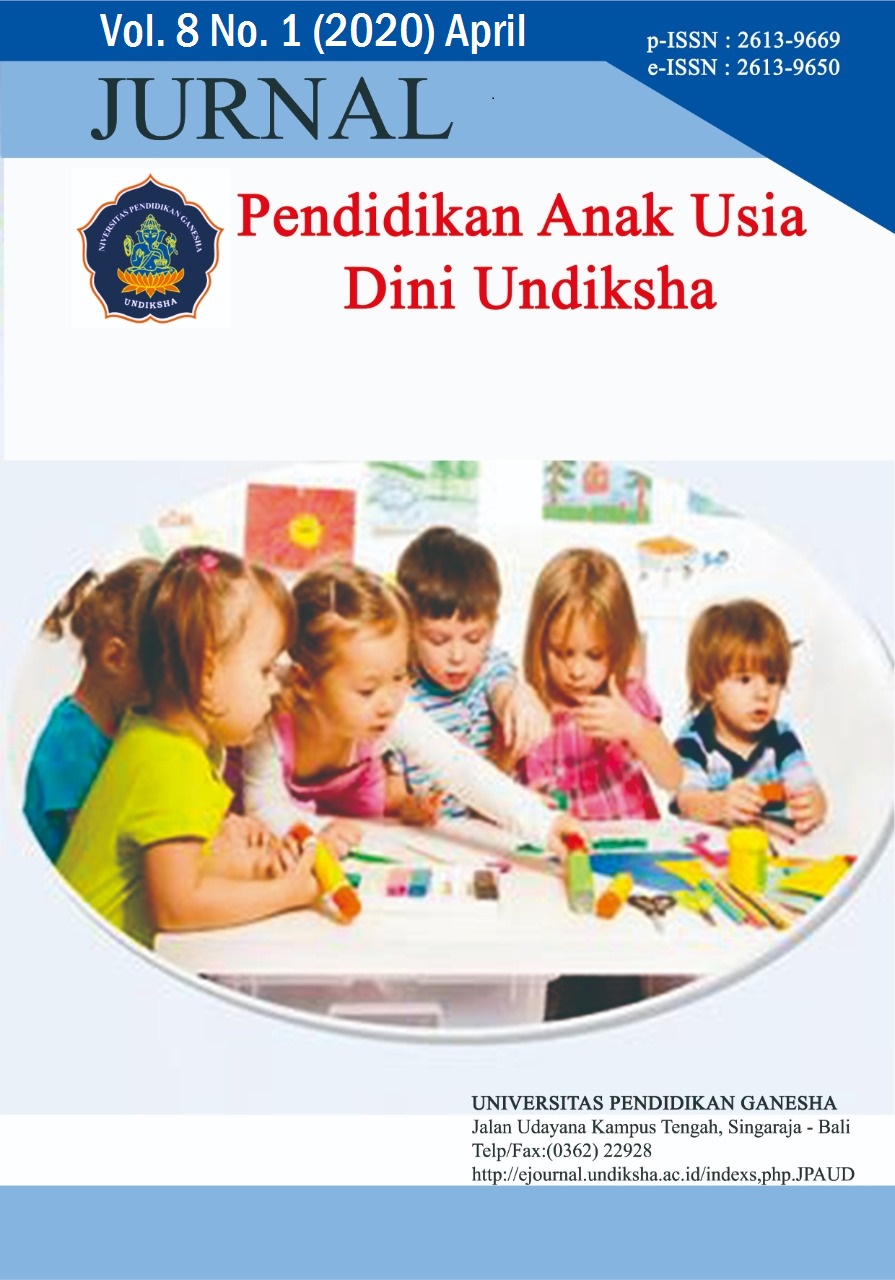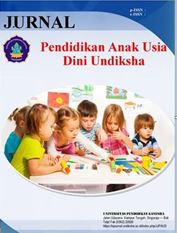Pengembangan Motorik Kasar Anak melalui Permainan Tradisional "Tarik Upih" Berbasis Kearifan Lokal
DOI:
https://doi.org/10.23887/paud.v8i1.24307Abstract
A traditional game of tarik upih for children is a fun game. Tarik upih is the stem or "base" of the areca nut leaf. Tarik upih can be played by two or more people. Through traditional play-ups, children are taught to be honest, cooperate, tolerance, tough, and train children's psychomotor movements. The purpose of this study is to determine the development of children's gross motor skills through traditional play-based traditional wisdom. This qualitative study used 15 research subjects of PAUD Harapan Bunda Kelurahan Sungai Pagar Kecamatan Kampar Kiri Hilir Kecamatan Kampar conducted in January 2020. The results showed that students had achieved Very Good Developing (BSB) results in coordinating movements for flexibility, balance (73%), coordinating eye-foot-hand-head-head movements (86.7%), and doing a physical play with rules (80%). Traditional play games for kids are taught to be honest, cooperate, tolerance, tough, train children's psychomotor movements, form a caring person, and have a love for their culture. The conclusion is the development of gross motor skills through tarik upih of traditional play based on local wisdom developed very well in PAUD Harapan Bunda students in Sungai Pagar Village, Kampar Kiri Hilir District, Kampar Regency.
Keywords: Education, Children, Local Wisdom, Traditional Games, Pull-Out Activity
Downloads
Published
How to Cite
Issue
Section
License
Authors who publish with the Jurnal Pendidikan Anak Usia Dini Undiksha agree to the following terms:
- Authors retain copyright and grant the journal the right of first publication with the work simultaneously licensed under a Creative Commons Attribution License (CC BY-SA 4.0) that allows others to share the work with an acknowledgment of the work's authorship and initial publication in this journal.
- Authors are able to enter into separate, additional contractual arrangements for the non-exclusive distribution of the journal's published version of the work (e.g., post it to an institutional repository or publish it in a book), with an acknowledgment of its initial publication in this journal.
- Authors are permitted and encouraged to post their work online (e.g., in institutional repositories or on their website) prior to and during the submission process, as it can lead to productive exchanges, as well as earlier and greater citation of published work. (See The Effect of Open Access)












